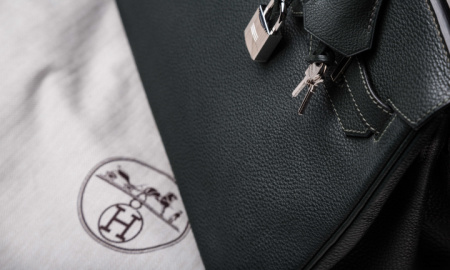Sign up for our free daily newsletter
YOUR PRIVACY - PLEASE READ CAREFULLY DATA PROTECTION STATEMENT
Below we explain how we will communicate with you. We set out how we use your data in our Privacy Policy.
Global City Media, and its associated brands will use the lawful basis of legitimate interests to use
the
contact details you have supplied to contact you regarding our publications, events, training,
reader
research, and other relevant information. We will always give you the option to opt out of our
marketing.
By clicking submit, you confirm that you understand and accept the Terms & Conditions and Privacy Policy
A Manhattan federal jury last Wednesday (1February) concluded that artist Mason Rothschild’s non-fungible token (NFT) versions of the famous Hermès’ Birkin bags violated the French fashion house's trademark rights.
What happened?
In December 2021, artist Mason Rothschild released the ‘MetaBirkin’ NFTs, a collection of 100 furry handbags that served as a nod to the iconic Hermès Birkin handbag. After refusing to stop the sale of his NFTs even after Hermès sent a cease-and-desist letter, Rothschild asserted that his work was protected under the First Amendment of the US Constitution.
Hermès sued Rothschild in the US District Court for the Southern District of New York, claiming trademark infringement, alleging that Rothschild’s unauthorized use of its intellectual property would lead to consumer confusion.
Rothschild moved to dismiss all claims, arguing that his NFTs were protected artistic expression under the Second Circuit’s 1989 Rogers v. Grimaldi test. Under Rogers, users of a trademark are protected from infringement claims if their use both (1) is an artistic expression and (2) does not explicitly mislead consumers. The judge denied Rothschild’s motion to dismiss and later denied both parties’ motions for summary judgment, setting the case for a jury trial.
Arguments at trial
Rothschild maintained throughout the trial that he was commenting on alleged animal cruelty involved in the production of leather goods when he created his ‘MetaBirkin’ NFT and compared them to Andy Warhol’s screen prints of Campbell soup cans.
Hermès’ lawyers argued that Rothschild’s NFTs harmed the luxury brand’s ability to enter to the Metaverse space and that his NFTs would confuse potential consumers into thinking that the ‘MetaBirkins’ NFTs are made and sold or otherwise connected with, associated with, sponsored by or approved by Hermès.
The jury found that artist Mason Rothschild’s unauthorised ‘MetaBirkins’ were likely to confuse consumers. The verdict returned by the jury awarded $133,000 in damages to Hermès – consisting of $110,000 of estimated profits from the sale of the NFTs and $23,000 for cybersquatting for registering the domain metabirkins.com.
What are the implications for the fashion industry, brand owners, creators and the meta industry?
The ‘MetaBirkins’ case verdict is generally a win for brand owners, as there is now some clarity on what is at stake for those seeking to enforce their intellectual property rights in the digital world. The outcome suggests that intellectual property rights should apply and be enforced – whether in the real world or virtual world.
Many luxury brands like Louis Vuitton, Gucci, and Givenchy have already entered the NFT space, and the ‘MetaBirkins’ case serves as a reminder that unlike traditional art displayed in galleries, artists and brands may be seen as competitors in the virtual world if they attempt to operate under the same or conflicting names.
Artists should take note that it is not the creation of art that is problematic, but rather the manner in which it is branded and packages to consumers that can infringe on intellectual property rights.
It is important to remember, however, that the ‘MetaBirkins’ case was a US federal jury trial, and did not establish any mandatory legal precedent.
In addition, the US Supreme Court is set to hear oral arguments in March in Jack Daniel’s v. VIP Products, where it will determine whether the humorous use of another’s trademark as one’s own commercial product is subject to the likelihood-of-confusion analysis used in the ‘MetaBirkins’ case, or protected under the First Amendment.
Although this dispute has nothing to do with NFTs, the Supreme Court's ruling in that case will almost definitely have an impact on Rothschild's likely appeal of the trial court's decision to the US Court of Appeals for Second Circuit.
Danielle Garno is a partner in Holland & Knight's Miami and Los Angeles offices representing luxury brands and fashion clients of all sizes from startups to multinational, global brands, helping them navigate through legal issues as well as counseling them on growing and sustaining a successful brand. Krithika Rajkumar is a litigation associate in Holland & Knight's Boston office and a member of the firm's Litigation and Dispute Resolution Practice.
Email your news and story ideas to: [email protected]










